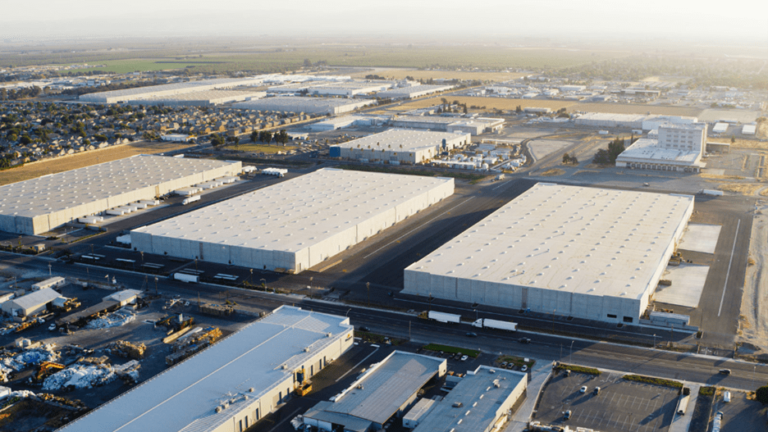Unlocking Profit: The Benefits of Investing in Industrial Real Estate

Investing in industrial real estate has become an increasingly attractive option for investors seeking high returns and portfolio diversification. The industrial sector includes warehouses, manufacturing facilities, distribution centers, and research and development spaces. This blog post explores the benefits of investing in industrial real estate and why it should be considered a valuable addition to any investment portfolio.
1. High and Stable Returns
Consistent Rental Income
Industrial properties typically offer higher rental yields compared to other real estate sectors. The demand for industrial space, driven by the growth of e-commerce and logistics, ensures steady rental income for property owners. Long-term leases with stable tenants, such as manufacturing companies and distribution centers, contribute to consistent cash flow and financial stability.
Appreciation Potential
Industrial properties often appreciate over time, particularly in high-demand areas with limited space. As the need for logistics and distribution facilities grows, the value of well-located industrial properties will likely increase, providing investors with capital appreciation and rental income.
2. Growing Demand
E-Commerce Boom
The rise of e-commerce has significantly boosted the demand for industrial real estate. Online retailers require extensive warehousing and distribution networks to manage inventory and fulfill orders efficiently. This trend is expected to continue, driving the need for more industrial spaces and creating lucrative investor opportunities.
Supply Chain Restructuring
Companies are reevaluating their supply chains to enhance efficiency and resilience. This restructuring often involves expanding or relocating distribution centers, creating additional demand for industrial properties. Investors can capitalize on this trend by investing in strategically located industrial real estate.
3. Diversification and Risk Mitigation
Portfolio Diversification
Investing in industrial real estate provides diversification benefits. Industrial properties’ performance is often less correlated with residential or commercial real estate markets, reducing overall portfolio risk. Diversifying into the industrial sector can mitigate the impact of market volatility and economic downturns.
Stable Tenancy
Industrial tenants, such as manufacturing firms and logistics companies, typically sign long-term leases, ranging from five to ten years or more. These long-term leases offer stability and reduce vacancy risk, ensuring investors a steady income stream.
4. Low Operating Costs
Maintenance and Management
Industrial properties generally have lower operating costs than residential and commercial properties. Maintenance requirements are typically less frequent and less costly. Additionally, industrial tenants often take on the responsibility for property maintenance, further reducing property owners’ expenses.
Lower Tenant Turnover
Industrial tenants tend to have lower turnover rates than other real estate sectors. The specialized nature of industrial spaces means tenants are more likely to stay for extended periods, reducing the costs of finding new tenants and minimizing vacancy periods.
5. Tax Benefits
Depreciation
Investors in industrial real estate can benefit from tax advantages such as depreciation. Depreciation allows property owners to deduct a portion of their value from their taxable income each year, reducing overall tax liability.
Expense Deductions
Operating expenses, including property management fees, maintenance, and mortgage interest, are often tax-deductible. These deductions can significantly reduce the taxable income from industrial real estate investments, enhancing overall returns.
6. Flexibility and Adaptability
Variety of Uses
Industrial properties are versatile and can be used for various purposes, including warehousing, manufacturing, distribution, research, and development. This flexibility makes adapting to changing market demands and tenant requirements easier.
Evolving Market Trends
The industrial real estate sector is well-positioned to adapt to evolving market trends, such as the growth of e-commerce, technological advancements, and manufacturing process changes. Investors can benefit from the sector’s ability to respond to these trends and remain relevant in a dynamic market.
About CRE Commercial Real Estate Fund
The CRE Commercial Real Estate Income Fund is a specialized investment vehicle that provides investors with consistent current income and potential capital gains. This secured fund strategically purchases and owns a diversified portfolio of income-producing commercial real estate assets across the United States. By focusing on high-quality properties, the CRE Income Fund aims to deliver above-market returns while offering security through its robust holdings in the commercial real estate sector. Investors can benefit from these assets’ steady income and the potential for long-term appreciation.
Conclusion
Industrial real estate investment offers numerous benefits, including high and stable returns, growing demand, portfolio diversification, low operating costs, tax advantages, and flexibility. Investors can capitalize on these opportunities to achieve substantial returns as the industrial sector thrives, driven by e-commerce growth and supply chain restructuring trends. By adding industrial properties to their investment portfolios, investors can unlock significant profit potential and enhance their financial stability.
